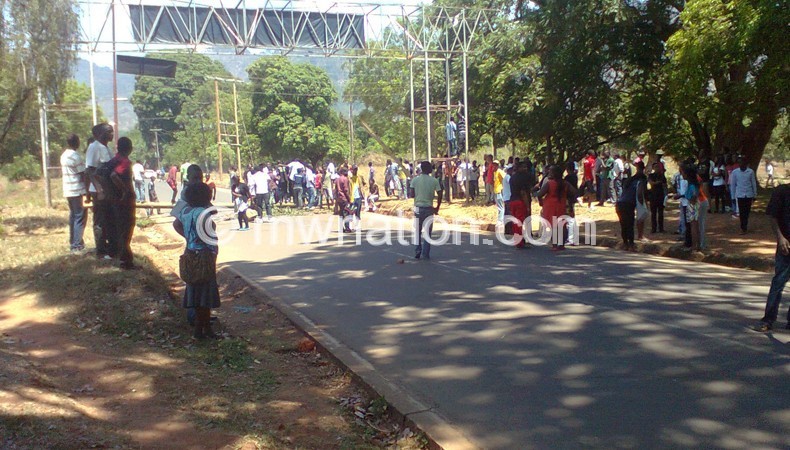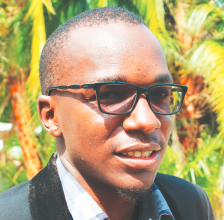Unima at 50: Challenges and opportunities
Experts have described 50 years of University of Malawi (Unima) existence as a time of few successes and little growth as ALBERT SHARRA writes.
About 40 years ago, Roy Hauya, a researcher and education commentator, left the University of Malawi (Unima) proud to be a product of an institution that boasted of quality standards. Decades later, he views Unima from a different angle: an institution with declining education standards.

blanket scholarships
“Quality has been compromised by a number of complex factors. The standards set by founding president Hastings Kamuzu Banda will simply never be met again,” explains Hauya.
While observing that Unima’s journey has been rough, Hauya says as the university celebrates its golden jubilee, it is an opportunity for the country to reflect on the positive side and brainstorm on how to move forward and make the institution better.
“The state of Unima today is a combination of poor resourcing, generations which hate study and hard work and a leadership which fails to recognise the value of university education, research and development,” says Hauya.
However, Hauya commends the institution for meeting its primary objective at its founding, which was to train a civil service for the newly-independent Malawi.
He explains that over the years, Unima’s constituent colleges have improved in reacting to demands and expectations of its services by introducing courses that support national growth.
But James Tchereni, who graduated from the university in 1980s, feels the university has not lived up to its expectation in many areas.
That notwithstanding, Tchereni says it is proper to celebrate some of its successes to create an opportunity for experts to soberly reflect on the journey and make recommendations on how the institution can move forward.
“The university has managed to achieve some of the expectations but it could have done better. During the 50 years we have done little to maintain standards. We are now experimenting with impractical ideas that are worsening the standards. Look at what self-boarding is now doing to our students. They are sleeping in substandard houses and eating poor meals. The reason is that the idea was rushed at and implemented without considering its impact,” he says.
Tchereni also points out political interference and under-funding as other factors that have let down the standards set during its founding.
“Most decisions await politicians. We all remember the academic freedom saga. To date, Unima continues to struggle to abolish blanket scholarships. These could already have been scrapped off if the constituent colleges were working independently. If needy students were the only ones benefiting and the rest paid tuition fees, colleges could have had money for new projects,” says Tchereni.
He also observes that most of the student strikes in the university are related to weakness on the structure of the blanket scholarships in the university. He cites demonstrations on delay or meagre upkeep allowances for students and at times protests against poor diets.
Tchereni says these are products of a poor scholarship outline and says he expects to see a difference now that government is reforming the scholarship system.
His observation dovetails with Unima registar, Benedicto Okamaatani Malunga’s sentiments in an earlier interview that what the institution’s students pay is not tuition fees, but a contribution that means nothing to students’ welfare in college.
Malunga revealed that the minimum cost for most programmes is K2 million (US$4 444) while engineering and medicine are K3 million (US$6 667) and K5 million (US$ 11 111) respectively.
“It is time Unima and other public universities create partnerships with stakeholders, and not only relying on annual funding from government,” he suggested.
He was optimistic that if such an initiative was adopted, respective colleges would not struggle to come up with new projects such as development of infrastructure.
“You can observe that despite knowing that demand for space continues to grow, the university has failed to create new space,” says Tchereni.
He adds that Unima has scored low in embracing technology, suggesting it introduces comprehensive online and distance learning courses. It is a point shared by educationist, Steve Sharra, who criticises Unima for being conservative in embracing technological change.
Another educationist Limbani Nsapato says while Unima has lost some of its glory, it is still a reputable institution of higher education in Malawi. He, however, says the growing competition due to mushrooming of private universities and the growing demand for the university system to respond to the current demands on the social and job market necessitates a rethinking of how Unima should proceed to remain relevant.
“Unima has tried to improve access over the years and we have seen more females participating in Unima programmes including in science, engineering and technology. Recent statistics show that at higher education level, access expanded by 7 222 percent from 180 in 1964 to around 13 000 in 2014 and constituent colleges of Unima are moving towards a 50:50 selection policy for males and females to bridge the gender gap.
“Many of Unima alumni have found employment in many sectors of society, although there is an outcry that the capacity of the graduates could have been better to respond to current needs of the job market,” he says.
Within a space of two academic years, 2014/2015 and 2015/2016, four new developments have been adopted in Unima: increasing tuition fees from K55 000 to K275 000 per year, stopping blanket scholarships, abolishing university entrance examinations and stopping students’ allowances.
Coincidentally, these reforms meet the expiry of the first 50 years of Unima’s existence, a period experts have described as years of little successes characterised by poor policies that do not support growth of quality standards of university education.
Nevertheless, the past is gone, how should Unima proceed now?
Nsapato says the first and major step is for the university to have a better direction.
“Unima needs a better vision and a strategy that will ensure autonomy and self-reliance. These should also effectively respond to the pressing needs of Malawians in the next 50 years.
“The curriculum needs to be revamped to address the challenges of dependency, unemployment and fork out the culture of self-reliance and ubunthu. Promote inclusive economic growth and people-driven sustainable development spurred by investment in science, mathematics, engineering and technology in addition to developing humanities and social sciences,” says Nsapato.
He advises authorities never to rush into this direction, but ensure that the strategy and vision address governance and management of the university with a drive towards autonomy and devolution.
“The National Council for Higher Education (NCHE) should ensure there is a split of all Unima’s constituent colleges to become autonomous institutions, which are able to generate their own resources for sustainability.
“The autonomous institutions should also have liberty to expand and increase intake by among others, expanding infrastructure, creating tuition centres in regions and districts, and investing on e-learning and distance education. This would be the easiest way of establishing new universities, rather than starting from scratch,” says Nsapato.
Another issue, he thinks, to be looked into is investing more in quality research by expanding postgraduate programmes at masters and PhD degrees levels.
On the relevance of university graduates, Nsapato proposes that Unima encourages ‘knowledge translation’ by building the capacity within its students and lecturers to translate research into practice.
“The research being done is of no use if it is not translated into action that will transform the communities and the societies. Knowledge translation is a new concept meant to resolve an old problem of “translating what is known-research knowledge” into what is done. Many people have knowledge about issues yet they don’t transfer it to those who can best apply it on the ground,” says Nsapato.
On access to university, Nsapato proposes a selection policy that ensures that enrolment moves more towards inclusion and equity, with emphasis on enrolment of disadvantaged groups such as girls, people with disabilities, poor and rural people, and orphans. He says the focus should not just be on geographical as the current quota system does.
But Sharra believes it is not too late for Unima to recover the lost glory.
“There is potential for a great future, but only if the country improves the economy and gives Unima the resources it requires. Academics need to be better rewarded and motivated,” says Sharra.
Sharra suggests that Unima considers developing a capacity for innovation as universities are currently raising funds through invention of new technologies and licensing techniques.
He insists that Unima can achieve the above success if political interference, which severely restricts academic freedom, is addressed and the economy, which dictates the pace of development in the university, is improved.
Hauya says the future of Unima lies in accessing the right resources in the right amounts. As things are right now, he says, the future is fairly good, more so, if Malawians allow it to operate as mixed public and private-model to generate the resources academics need to teach and do research.
“University education is an expensive commodity, and weak economies such as Malawi’s, cannot expect citizens to deliver quality purely from the public purse. Leaders must stop politicising education and let academics define the best parameters. It is a hard decision and sensitive, but that is the only way for Malawi to develop an education system that is both excellent and competitive,” says Hauya.
While the ideas proposed above sound relevant and have the potential to improve higher education, adoption and implementation by authorities remains a challenge and leaves the ball in Unima authorities’ court. However, if the country is to sing a different song 50 years later, experts argue that it is time authorities changed the approach in doing things.





